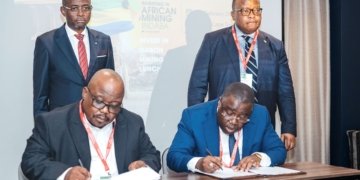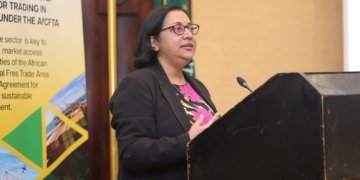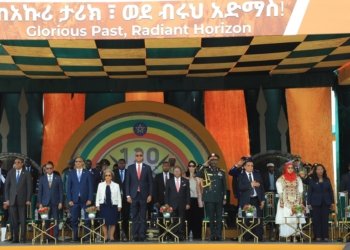ADDIS ABABA, Ethiopia (BG) – The African Union Commission (AUC), through the Africa-EU Energy Partnership (AEEP), announced on Wednesday the adoption of key energy and transport strategies by African Ministers to shape the continent’s energy future.
The decisions came during the Third Extra-Ordinary Specialized Technical Committee (STC) on Transport and Energy held virtually from December 3-5, 2024.
The meeting, which brought together more than 140 participants from 42 African countries, including ministers and high-level representatives, focused on approving critical frameworks to enhance Africa’s energy and transport sectors.
The STC endorsed several strategic initiatives:
African Green Hydrogen Strategy and Action Plan: This plan seeks to position Africa as a global leader in green hydrogen production by leveraging the continent’s renewable resources, access to essential minerals, and proximity to export markets.
African Energy Efficiency Strategy(AfEES), Roadmap, and Action Plan: Complementing the African Energy Efficiency Program launched at COP29, AfEES outlines ambitious goals to increase energy productivity by 50% by 2050 and 70% by 2063, with applications spanning power, agriculture, transport, and clean cooking.
Continental Strategy for Sustainable Aviation Fuels (SAF) and Low Carbon Aviation Fuels (LCAF): This strategy supports the development of cleaner aviation fuels in Africa.
Revised Abuja Aviation Safety Targets: Updated to enhance aviation safety across the continent.
Continental Policy on Climate Resilient and Smart Infrastructure: Focused on building robust, future-ready infrastructure.
The African Energy Efficiency Strategy aligns with global targets, including COP28’s goal to double energy efficiency by 2030, and supports Africa’s broader energy access objectives.
The African Union (AU) launched the African Energy Efficiency Programme and the African Energy Efficiency Alliance at COP29 in Baku, Azerbaijan, in November 2024 to advance energy productivity in the continent.
Energy efficiency is central to Africa’s efforts to enhance energy access, reduce greenhouse gas emissions (GHGs), lower energy costs, and foster a clean energy transition.
According to the AU, AfEES lays out a roadmap for implementing energy-efficient practices across key sectors, including power, industry, agriculture, buildings, transport and clean cooking, as well as a clear pathway to achieving the AU’s ambitious energy productivity targets.
The STC, essential decision-making organs of the AU, play a critical role in monitoring development programs and providing expertise for policy implementation.
This latest STC meeting exemplifies Africa’s commitment to driving sustainable energy transitions while addressing global climate goals.























